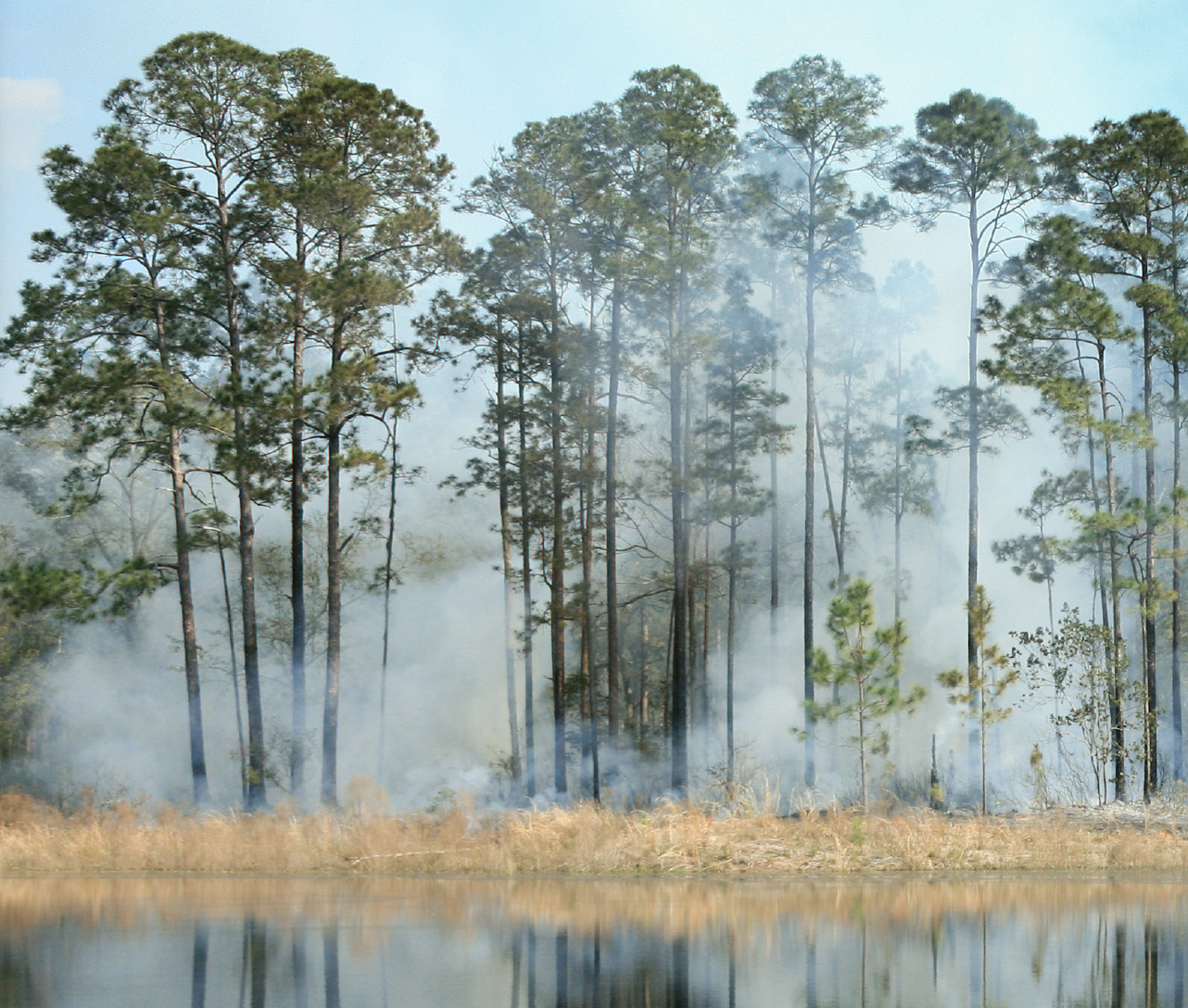
4 minute read
Virginia
from Prescribed Fire Liability Report for the Southern United States: A Summary of Statutes and Cases
In Virginia, a prescribed burn conducted in accordance with the Certified Prescribed Burn Manager Program Act (the Act), state air pollution control rules, and related regulations “shall be in the public interest and shall not constitute a nuisance.”
Va. Code § 10.1-1150.5(A). The Act defines prescribed burning as “the controlled application of fire or wildland fuels in either the natural or modified state, under specified environmental conditions, which allows a fire to be confined to a predetermined area and produces the fire behavior and fire characteristics necessary to attain planned fire treatment and ecological, silvicultural, and wildlife management objectives.” § 10.1-1150.1.
Compliance with the Act involves four requirements.
1. Certified Prescribed Burn Manager
Prescribed burning must involve the preparation and supervision of a certified prescribed burn manager (CPBM). The CPBM prepares the prescription plan as described below and directly supervises the prescribed burn to “ensure that the prescribed burning is in accordance with the prescription.” § 10.1-1150.4(1)(2). Virginia’s Department of Forestry hosts trainings, which notices are posted to its website here: https://dof.virginia.gov/wildland-prescribed-fire/ prescribed-burning/certified-burn-managersprogram/. Additionally, other comparable training programs—or equivalent experience—plus passing the examination qualify for certification. § 10.1-1150.3.
2. Written Prescription
The CPBM must prepare a written prescription in advance of the burn that includes (i) the landowner’s name, address, and telephone number, as well as the telephone number of the CPBM; (ii)a description of the objectives and burn area, along with a map; (iii) a summary of the methods to start, control, and extinguish the prescribed burn; and (iv) a smoke management plan based on the Virginia Department of Forestry’s Smoke Management Guidelines and the U.S. Forest Service’s Guide to Prescribed Fire in Southern Forests. § 10.1-1150.4(1). The Act defines the prescription as “a written statement defining the objectives to be attained by a prescribed burning and the conditions of temperature, humidity, wind direction and speed, fuel moisture, and soil moisture under which a fire will be allowed to burn. A prescription is generally expressed as an acceptable range of the prescription elements.” §10.1-1150.1. “A copy of the prescription shall be retained at the site throughout the period of the burning.” § 10.1-1150.4.
3. Notice to Department of Forestry
The nearest regional office of the Virginia Department of Forestry must be notified prior to the burn. § 10.1-1150.5(3).
4. Approval by Virginia’s Air Pollution Control Board
The State’s air quality regulations permit open burning approved by the air pollution control board so long as the burning occurs at least 1,000 feet from an occupied building—or the building occupants have given prior permission—and then burn is attended at all times. 9 Va. Admin. Code 5-130-40, 5-130-50.
Virginia law also limits prescribed burning conducted between February15 and April 30 of each year to the hours of 4:00p.m. and 12:00a.m. if the prescribed burn is to occur within 300 feet of a woodland, brushland, or field containing dry grass or other inflammable material. Va. Code § 10.1-1142(B). This restriction may be avoided if the above requirements are met, the State Forester prior to February 1 approved of the written prescription, and the burn is being conducted for (i) the control of exotic and invasive plants, which cannot occur at other times during the year, (ii) wildlife habitat establishment and maintenance, which cannot occur at other times during the year, or (iii) management of natural heritage sources. § 10.1-1142(C).
Civil Liability Virginia
Compliance with the above requirements protects landowners or burners from liability for nuisance claims and smoke damage absent a showing of negligence. § 10.1-1150.5. However, no corresponding liability protection exists under the statute for fire damage.
Virginia law provides some indication of negligence specific to prescribed fire. A landowner must use “all reasonable care and precaution, by having cut and piled [any woods, brush, logs, leaves, grass, debris, or other inflammable material] or carefully cleared around the same to prevent the spread of fire to lands” owned by others. § 10.1-1142(A). A landowner that fails to take “all reasonable care and precaution,” or negligently or intentionally fails to prevent a prescribed fire’s escape, shall be liable to the State or locality for suppression costs and any damages associated with the fire spreading beyond the landowner’s borders. §§ 10.1-1148, 10.1-1141.
Criminal Liability
Virginia also assesses criminal liability on a landowner or burner for (1)failure to adhere to the seasonal restrictions summarized above; or, if burning within the seasonally restricted time period, (2) failure to comply with the Act, including approval of the State Forester; or (3) failure to take “all reasonable care and precaution,” including the piling or clearing described above. § 10.1-1142(A). Such violations carry a Class 3 misdemeanor charge for each separate offense and liability to the State for all suppression expenses. § 10.1-1142(A).










